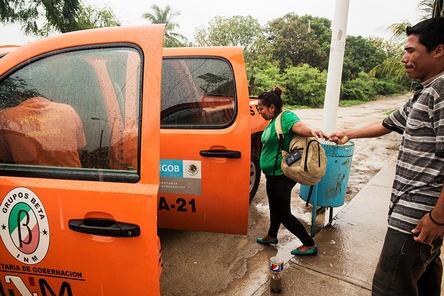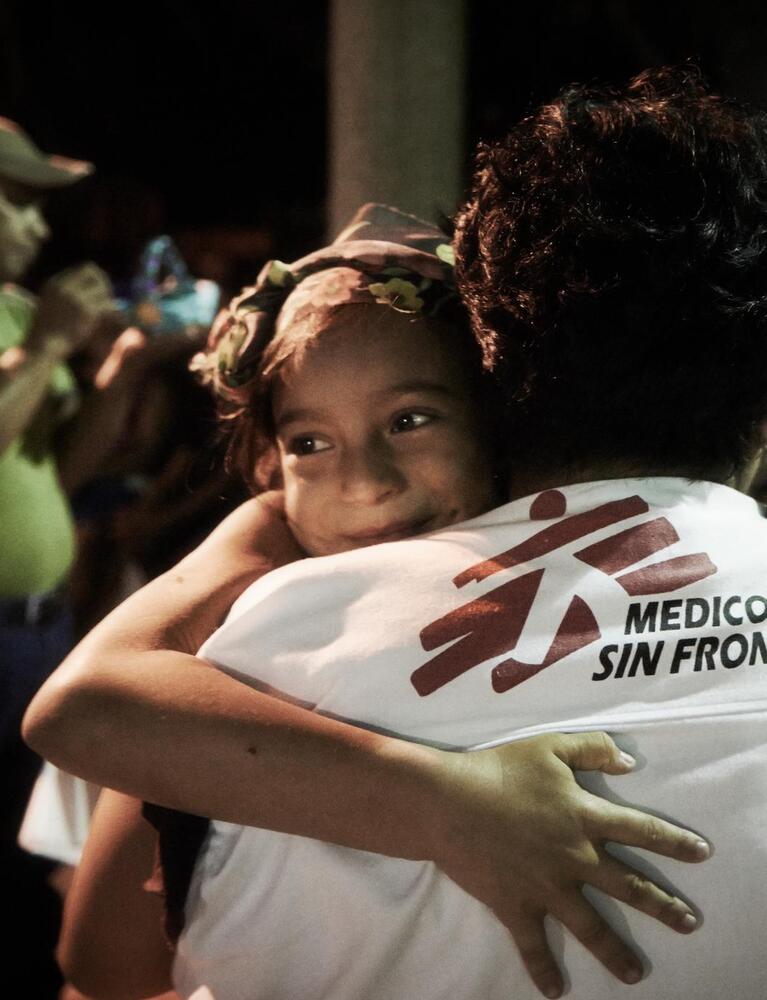Those who pass through Mexico, including Mexicans, are at great risk of kidnapping, extortion, physical and mental abuse, and even death.

With a population of nearly 127 million people, Mexico is one of the most populous countries in the world.
Since 2007, the country's powerful drug-trafficking organisations have engaged in bloody feuding, resulting in tens of thousands of drug-related killings – terrorising millions.
Médecins Sans Frontières/Doctors Without Borders (MSF) has been working in Mexico since 1985 filling healthcare gaps and providing migrants with medical care.
[[Country-Facts]]
Patient STory
Yenny Guardado, a 26-year-old Salvadoran, riding ‘The Beast’ – a Mexican cargo train travelled by tens of thousands of Central Americans to the US every year.

“We put our backpacks on. I was nervous, I was trembling. Some of the people on the train were banging their machetes, trying to scare the thieves away. But in the end nothing happened to us and the train went on.”
“I never thought that the route was going to be like this. There are women who have the same objectives, to reach the US, but only a few decide to go on.
“Just imagine – you are thrilled, you have a dream, but then the route can take your life away.”
MSF’s work in Mexico: 2015
MSF continued to run its programme for migrants, offering mental healthcare and psychosocial support, hospital referrals and follow-up for emergency cases.
During the first eight months of the year, some 19,000 people were registered in the shelters where MSF works and nearly 50 percent received support of some type.
More than 900 medical and 1,100 mental health consultations were carried out in Ixtepec, Tenosique, San Luis Potosí, Apaxco, Lechería, Huehuetoca and Bojay.
Support for survivors of violence
At the end of the year, a new centre for migrants who had been victims of inhumane treatment was opened in the capital. Support was offered to people who had been identified and referred by our teams and other organisations working in the area.
In Colonia Jardín, Acapulco, MSF offered mental health support to survivors of violence and carried out over 3,000 consultations.
[[Article-CTA]]
Chagas disease
MSF continued to work with the health authorities to implement a comprehensive response to Chagas disease in San Pedro Pochutla municipality, Oaxaca state.
Missing students
In the first few months of the year, we continued to provide psychological support to the parents of the 43 students who disappeared in Ayotzinapa, Guerrero state, Mexico.
We also started operations in Tierra Caliente, where violence has led to staff shortages and has disrupted access to medical services by forcing several rural health posts to close.
We began working in Arcelia hospital, providing access to emergency obstetric services and assisting caesarean sections.
Find out more in our 2015 International Activity Report



